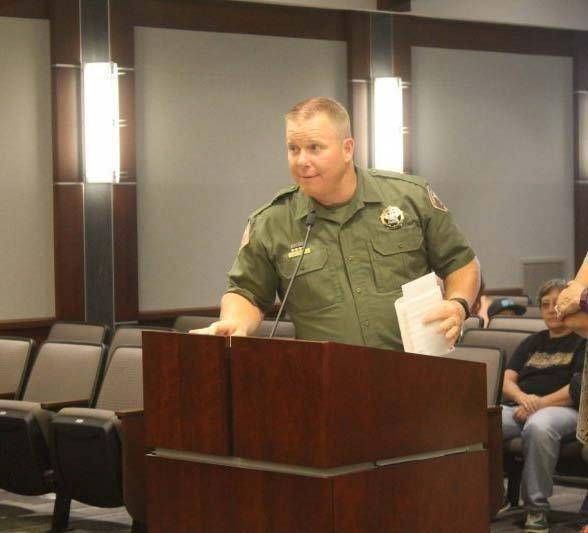A meeting took place on Feb. 22 to discuss the arrival of a needle exchange program in Carbon and Emery counties by a group called Utah Harm Reduction Coalition. This meeting sparked controversy throughout the community with opposing sides each holding strong points. This is the first of a four-part series that will get different points of view from our community on the program.
This exchange program would include a package deemed “the works.” Each kit includes a needle, syringe, cookers, cottons balls, tourniquets, condoms and “everything you need to use to prevent disease,” according to Mindy Vincent, founder and executive director of Utah Harm Reduction Coalition.
Carbon County Sheriff Jeff Wood recently spoke with ETV 10 News to share his position on the program. He shared that in May 2016, the state legislature passed the syringe needle exchange law (26-7-8). The law is designed to be that only, a needle exchange. The law outlines who can and cannot participate as well as the fact that a new syringe can only be given with the exchange of a used one.
Sheriff Wood stated that he does not feel as if the group is going about the program in the most efficient way for the community. He believes that it would be more beneficial if the Southeast Utah Health Department, Substance Abuse Authority or other such entity run the exchange.
To Sheriff Wood, the biggest concern is that nowhere in the law that was passed does it say that anyone is able to give “the works” out with the needle. The Utah Harm Reduction Coalition is giving “the works.” Sheriff Wood stated that this is unlawful according to the Utah State Paraphernalia Act (58-37a-5). This law states, “It is unlawful for any person to deliver, possess with intent to deliver, or manufacture with intent to deliver, any drug paraphernalia, knowing that the drug paraphernalia will be used to plant, propagate, cultivate, grow, harvest, manufacture, compound, convert, produce, process, prepare, test, analyze, pack, repack, store, contain, conceal, inject, ingest, inhale, or otherwise introduce a controlled substance into the human body in violation of this act.” Therefore, the program as it has been presented, seems to be in direct violation of this law and can result in a third-degree felony when a kit is given out to those under the age of 18.
Another main issue that Sheriff Wood sees with this program is that it does not have much to do with prevention or treatment. “The treatment component is missing from this and we need that,” Wood stated.
According to the sheriff, all law enforcement officers are given the Hepatitis C vaccine. To him, he believes that going that route is going to be more effective. He also believes that the group should give education on HIV rather than visiting the community twice monthly and expecting people to use a clean needle for the other days of the month. To him, that this is an unreasonable expectation.
Sheriff Wood acknowledged the fact that it is expensive to treat addition, but he also pointed out that nothing about this addiction is cheap. “As I see it, if we erode these barriers it’s going to be detrimental to the prevention of the addiction,” Wood said.
If the needle exchange program operates according to the law, every two years the people behind the program must report their findings. These findings include the number of exchanges, number of individuals, impact on blood-born infections and numbers of treatments received, among others. To Sheriff Wood, the Health Department or a similar entity would be better able to collect these numbers.
Sheriff Wood then stated that he has conducted his own research and has found areas that have had success raters with the lawful needle exchanges. He then stated that he has spoken with many people from many cross sections in Carbon County and has found only one person that supports this idea. He has spoken with ER nurses, doctors, recovering addicts, county and city officials and more.
“With all that said, I don’t think we should turn our backs on the recovering community,” Wood said.

